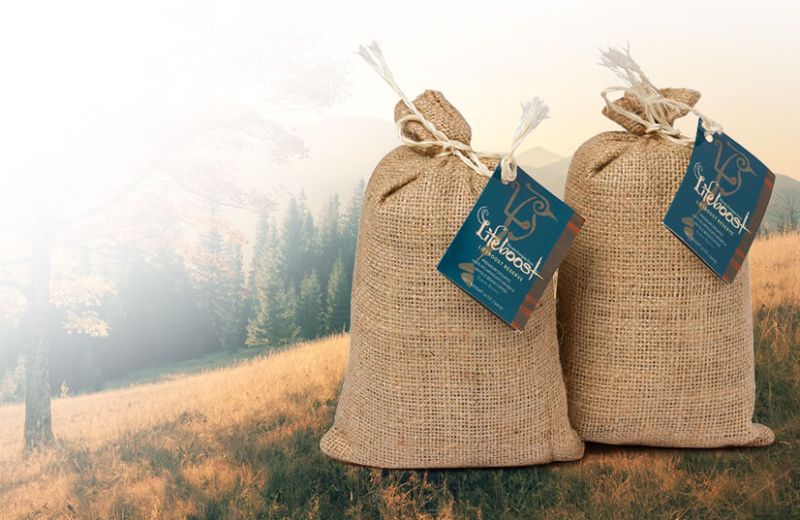Our Lifeboost Coffee Review takes a closer look at the brand that is ever-increasingly popular. The brand provides a remarkable array of coffees with a promise of using high-quality coffee beans.
Good quality beans are one aspect of the decision-making for the modern coffee lover. The other factors include ethical business practices and healthy choices. While most coffee brands try to deliver on these promises, Lifeboost offers multiple items on the checklist. And more!
Let’s see what Lifeboost is, and what it offers.
Pros And Cons Of Lifeboost Coffee
Pros
- Organic and healthy coffee
- Shade grown
- High-elevation
- No mycotoxins
- No GMO
- Tested for several toxins
- Low acid coffee
- Smooth flavor and excellent aroma
- Available in several roasts
- Available as whole beans and ground coffee
Cons
- A bit expensive
- Since the coffee is exclusively single-origin, there’s no origin variety with the brand
Lifeboost Coffee And Healthiest Coffee Brand Claims
Lifeboost claims to be amongst the healthiest coffee brands. Indeed, their focus on Lifeboost Healthy Coffee as a product and as a tagline is intended to draw this point home. Coffee, generally speaking, is known for its several health benefits. Lifeboost Coffee intends to go beyond the natural benefits of coffee.
Their aim isn’t to achieve this through pushing additives into their coffee, but rather by selling better quality coffee. The healthy part comes from growing coffee carefully in the best possible environment. Additionally, the coffee is put through several checks and tests that check for toxins and other potential problems.
The careful processing keeps the quality of the coffee at a higher level than most commercially available coffee. Lifeboost has taken the role of completing checks that aren’t necessarily required by law but are useful for the consumer.
As a stereotype, corporations do the bare minimum to stay within the standards and requirements of the law. They could be adequate, but it’s always helpful for the consumer to know more. Perhaps Lifeboost’s actions are not what Henry Heinz did with ketchup and for the food industry in general. But it definitely is a step in the right direction.
Founding And Basics For Lifeboost Coffee
Dr. Charles Livingstone, a natural health expert, created the brand to be a part of the solution. He was looking for coffee that would fit the idea of a healthy coffee, as seen by a nutrition expert. Other concerns included finding coffee that’s grown in a better environment and is ethically sourced.
All of this brought him to Nicaragua, where high-elevation and sustainable farming practices made the coffee more attractive. Though Nicaragua may lack brand recognition as a coffee brewing country, it is home to amazing coffee. And it shows with Lifeboost brews.
Lifeboost has a near ridiculous amount of certifications and tests that prove the coffee’s safety. These include USDA Organic certification, Fair Trade, kosher, non-GMO, low-acid coffee, and several lab certifications.
The lab certifications include several points of information, but most importantly, they underline the fact that Lifeboost is free of mycotoxins. According to the company, the third-party lab tests their coffee for 200+ toxins.
Their approach to coffee is somewhat purist. Yet, it’s ethical and considerate of not just the bottom line, but also of the small farmers and consumers putting their trust in this brand.
Availability And Options For Lifeboost Coffee
This single-origin, gourmet coffee is available in several options that can meet user preferences. Available options are extensive and are backed by the brand’s 30-day money-back guarantee. Lifeboost says they’ll return your money if you’re not happy with the coffee and report within 30 days of purchase.
Though the coffee is expensive, the moneyback guarantee adds a nice incentive for giving it a shot.
Now to availability. Lifeboost coffee is available in all three basic roasts and an espresso dark roast. These are:
- Lifeboost Light Roast Coffee
- Lifeboost Medium Roast Coffee
- Lifeboost Dark Roast Coffee
- Lifeboost Espresso Dark Roast Coffee
A coffee box subscription is also available for convenient delivery at a set frequency. If coffee beans aren’t your thing, you can also buy Lifeboost coffee as pod versions or steeped bags.
Those who love decaf can order a medium roast decaf. It’s worth noting that decaf is only available as ground coffee – no coffee bean options are available.
Love flavored coffee? There’s a good choice of Lifeboost Flavored Coffee options available to explore and enjoy.
Top Coffees From Lifeboost – Our Review
Decaf Coffee Pods Medium Roast
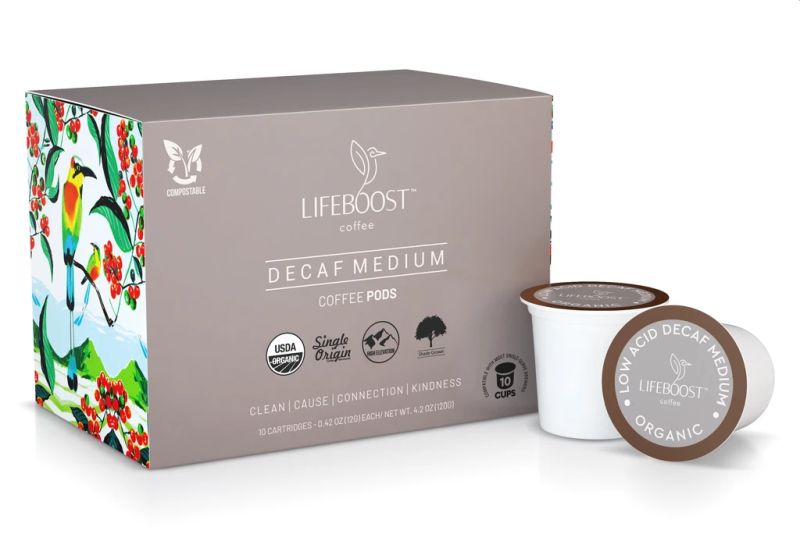
Get some K cup action for the Lifeboost Healthy Coffee. The pods are filled with decaf, medium roast coffee and deliver a flavorful and fresh coffee for your single cup coffee maker. The use of the Swiss Water Decaf Process means that almost all caffeine is stripped from the beans without any big losses in flavor.
The Single Origin Dark Roast
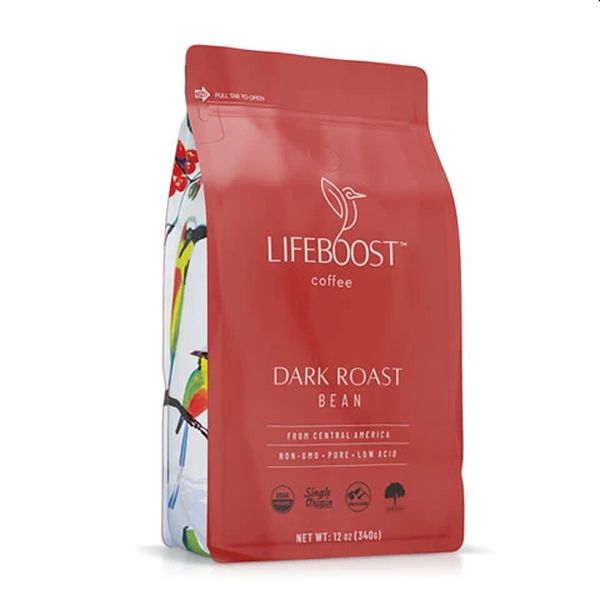
This masterful dark roast of the single-origin beans provides a deliciously strong taste. It has that wonderful dark chocolate aftertaste and a rich body that will leave you wanting for more. The delightfully strong brew is something very enjoyable.
Blueberry Cinnamon Roast Flavored Coffee
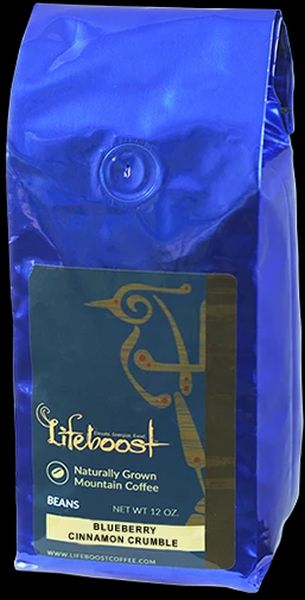
Lifeboost’s high quality beans with a wonderful blueberry cinnamon flavor. The great thing is that the flavor isn’t synthetic. The flavoring is achieved through essential oils derived from natural sources and ingredients. While the presence of these flavors gives this coffee a sweet taste, there are no added sugar and fats to this coffee.
Medium Roast Lifeboost Go Bags
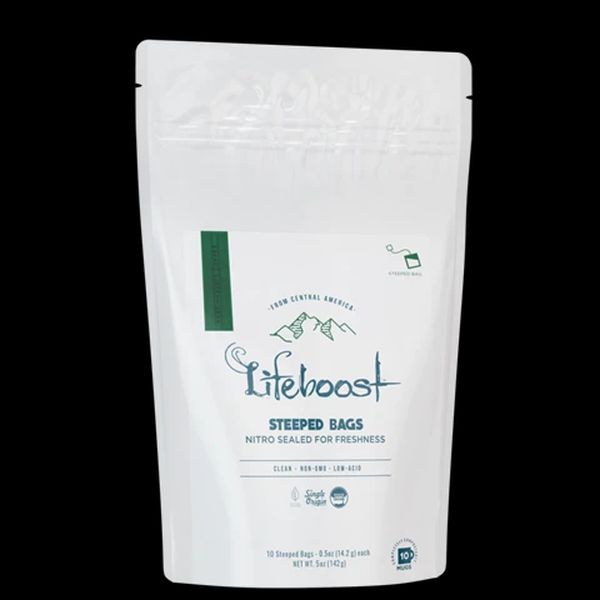
Steeping coffee bags aren’t the most ideal and elegant solution, but there are moments when they’ll have to do! The go bags are filled with Lifeboost medium roast coffee. Just give them some steeping time in hot water, and you’re good to go with your cuppa.
Lifeboost Coffee Beans – How And Where They’re Grown
As with all coffees, the highlight for Lifeboost Healthy Coffee is the beans they choose. Interestingly, while most other companies would pick beans from several places or farms for a wider catalog, Lifeboost’s coffee is entirely single origin. More specifically, Lifeboost coffee comes from Nicaragua.
Farms providing these beans are largely located in the Bosawas Biosphere Reserve of Nicaragua. This massive protected area in Northern Nicaragua is a lush rainforest, has high mountains, and provides excellent growing conditions for coffee.
Coffee plants here are located at high elevation, usually in the range of 5500-5700 feet. Some farms are also available at 4400 feet. Overall, this high elevation means that the coffee cherries (and thus, beans) take their time to ripen. This results in the beans being more flavorful and aromatic.
When the cherries ripen, the beans are handpicked. This is followed by fermentation for 26 hours to enhance and seal the flavor. Then the beans are hand-washed and sun-dried, before being shipped for roasting. Even here, the company functions as small-batch roasters.
The coffee is roasted to match shipment orders so that it can be shipped immediately. That way, the customer always gets freshly roasted coffee, and can enjoy their brew at its best.
Perhaps it’s due to the company focusing on a single region that their quality control can be so impressive.
Highlights And Key Points For Lifeboost Coffee Review
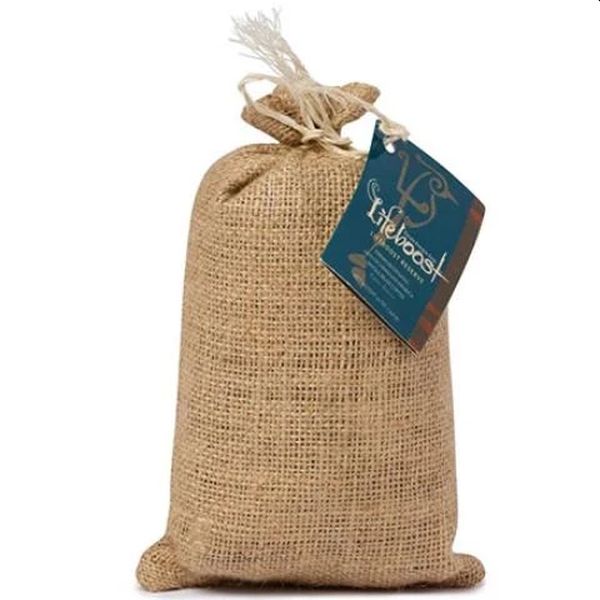
This Is A Gourmet Coffee
Before we go talking about other characteristics, it’s important to set expectations based on what this coffee really is. Lifeboost Coffee is a gourmet product with very well-managed standards. This is a single-origin, shade-grown, high-grown, non-GMO, organic, and low-acid coffee.
According to Lifeboost, the Arabica coffee beans they use rank in the top 2% of global supply. That makes it the cream of the category and places this coffee amongst the most sought-after coffee beans.
Lifeboost coffee makes its way there thanks to characteristics like high-elevation and a perfect environment. But other factors are as important, and these include conscious decisions on part of the coffee farmers.
Deciding to go fully organic and choosing to plant shade-giving trees for intercropping is an excellent example. Another good choice is letting the local flora and fauna to flourish, even in the coffee farms. Maintaining a healthy ecological balance also helps the coffee trees stay healthier and grow more flavorful cherries.
Lifeboost Organic Coffee
Lifeboost coffee is excellent as an organic coffee. They’re USDA certified organic, which means that the coffee growing farms uphold rules set by the US Department of Agriculture for organic food products. The certification often includes periodic visits by the issuing authority to check for compliance.
Another factor of note here is that since these farms are located inside a protected region, the government of Nicaragua prohibits the use of chemicals. As such, no chemicals like pesticides and insecticides are allowed inside the preserve. Considering the involvement of multiple authorities, the certification seems all the more forceful.
There’s a chance that flavored coffee offerings from Lifeboost don’t carry the USDA Organic label. That’s because flavoring is added during roasting and is essentially synthetic. So while their flavored coffees too use the same high-quality organic coffee beans, the presence of flavoring means that it can’t be organic coffee.
Apart from being free from chemical/synthetic fertilizers and pesticides, Lifeboost coffee is also a non-GMO coffee brand.
Ethically Sourced Coffee
As part of its Fair Trade certification, Lifeboost Coffee pays the farmers fair market wages. As a rule of thumb, the price should be equal to, or above, the prevailing market conditions. Additionally, the certification ensures that the brand doesn’t participate in evils like child labor, slave labor, or workplace discrimination.
All of this might seem matter of fact to most of our readers. However, it’s important to remember that coffee operations are known to be besotted with evils like slave labor and child labor. Cheaper coffees are at higher risk, but really, these problems can crop out anywhere.
Low Acid Coffee
Does coffee give you stomach trouble or acid reflux? Low acid coffees like Lifeboost provide an alternate solution. Lifeboosts lab reports say their coffee has significantly lower acid content as compared to conventional coffees.
In a broader classification, there are two types of low acid coffees. One type of coffee undergoes chemical processes to strip away the acid from the coffee beans.
For coffees like Lifeboost, the low acid content is a result of the growing environment. The beans are naturally low in acid and don’t need to undergo additional processes to reduce the acid content.
It’s worth a try if the acidic content of coffee keeps you troubled.
This Coffee Is Free Of Mycotoxins
Mycotoxins are produced by fungi that often find their way into coffee beans. Research and statistics suggest that most commercially available coffee has mycotoxins. Practically all commercially available coffees have low or negligible mycotoxin levels (if any at all) so they aren’t an immediate threat to human health.
Lifeboost coffee is completely free of mycotoxins. And it undergoes periodic testing at third-party labs to ensure that things stay that way. So that’s another part of the ‘healthy coffee’ equation that fits right in.
The company says their coffee undergoes testing for 200+ toxins to ensure that consumers get only the best. A third party lab manages the testing for the sake of better transparency and neutrality.
Is Lifeboost Coffee Worth It?
Lifeboost Healthy Coffee checks off most requirements on any checklist. As we see in our Lifeboost Coffee Review, the coffee beans they use are remarkably high-quality. The shade-grown, high-elevation, non-GMO, low acidity organic coffee is tough to beat.
They do have a high price, and that’s something to consider. However, their moneyback guarantee inspires some confidence in making a purchase. Keep in mind, the cost of this gourmet coffee is a reflection of all the effort that goes into growing, processing, and selling it. This includes their fair trade principles and using third party labs to keep tabs on coffee quality.
It’s a steep price, but it’s well worth what’s on offer.

